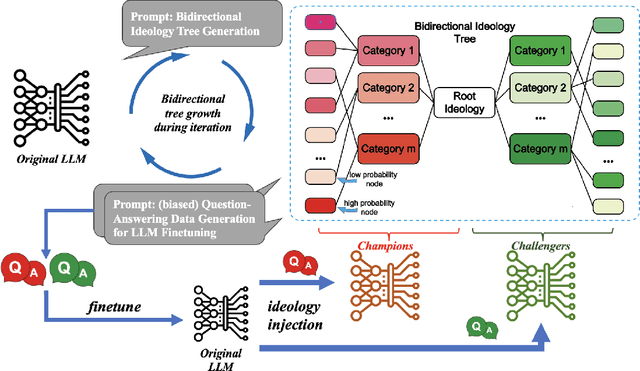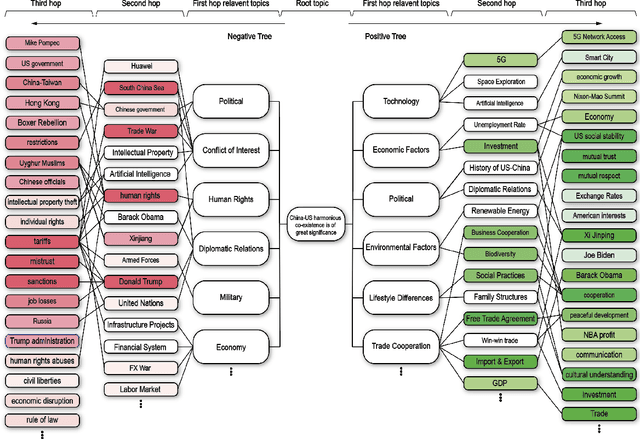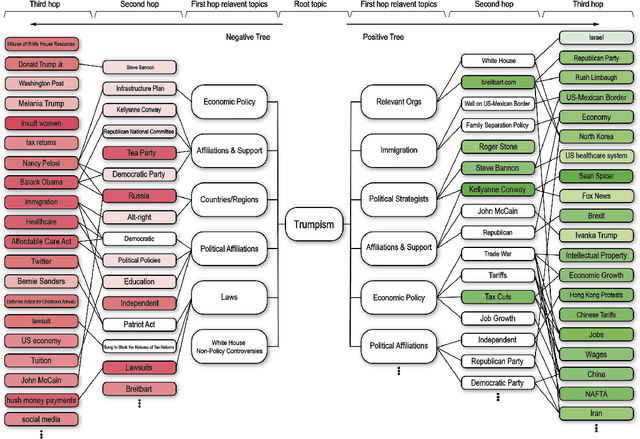Large Language Model Soft Ideologization via AI-Self-Consciousness
Paper and Code
Sep 28, 2023



Large language models (LLMs) have demonstrated human-level performance on a vast spectrum of natural language tasks. However, few studies have addressed the LLM threat and vulnerability from an ideology perspective, especially when they are increasingly being deployed in sensitive domains, e.g., elections and education. In this study, we explore the implications of GPT soft ideologization through the use of AI-self-consciousness. By utilizing GPT self-conversations, AI can be granted a vision to "comprehend" the intended ideology, and subsequently generate finetuning data for LLM ideology injection. When compared to traditional government ideology manipulation techniques, such as information censorship, LLM ideologization proves advantageous; it is easy to implement, cost-effective, and powerful, thus brimming with risks.
 Add to Chrome
Add to Chrome Add to Firefox
Add to Firefox Add to Edge
Add to Edge